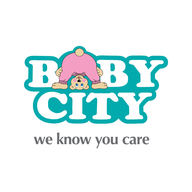
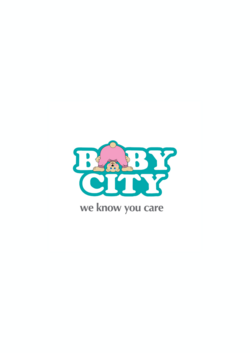
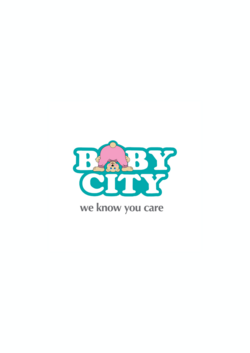


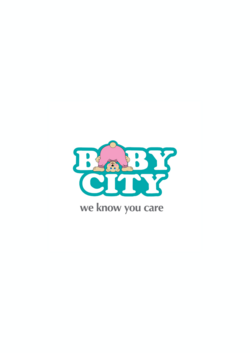


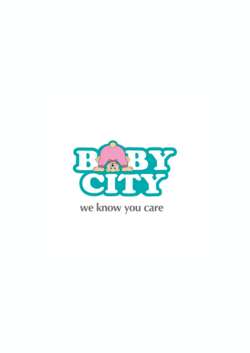

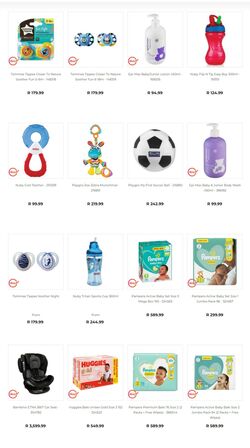


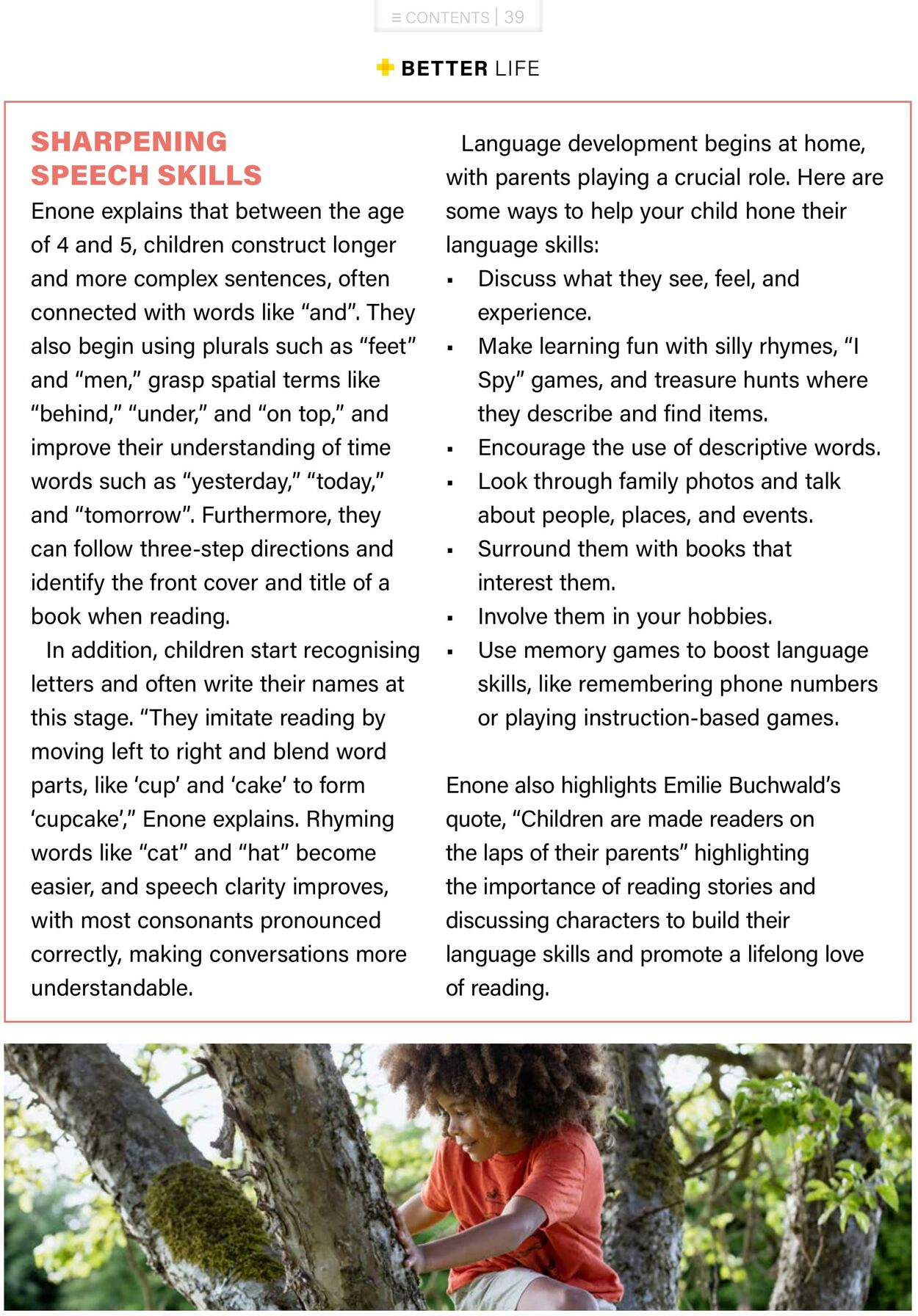
Products in this catalogue
*» BETTER LIFE SHARPENING SPEECH SKILLS Enone explains that between the age of 4 and 5, children construct longer and more complex sentences, often connected with words like “and”. They also begin using plurals such as “feet” and “men,” grasp spatial terms like “behind,” “under,” and “on top,” and improve their understanding of time words such as “yesterday,” “today,” and “tomorrow”. Furthermore, they can follow three-step directions and identify the front cover and title of a book when reading. In addition, children start recognising letters and often write their names at this stage. “They imitate reading by moving left to right and blend word parts, like ‘cup’ and ‘cake’ to form ‘cupcake’,” Enone explains. Rhyming words like “cat” and “hat” become easier, and speech clarity improves, with most consonants pronounced correctly, making conversations more understandable. Language development begins at home, with parents playing a crucial role. Here are some ways to help your child hone their language skills: » Discuss what they see, feel, and experience. » Make learning fun with silly rhymes, “I Spy” games, and treasure hunts where they describe and find items. = Encourage the use of descriptive words. » Look through family photos and talk about people, places, and events. » Surround them with books that interest them. + Involve them in your hobbies. » Use memory games to boost language skills, like remembering phone numbers or playing instruction-based games. Enone also highlights Emilie Buchwald's quote, “Children are made readers on the laps of their parents” highlighting the importance of reading stories and discussing characters to build their language skills and promote a lifelong love of reading.
| Name | Details |
|---|